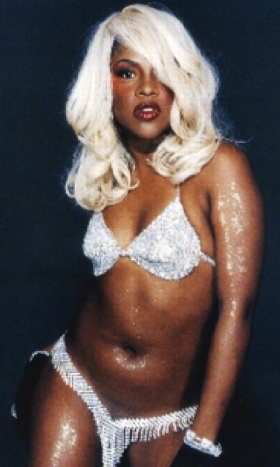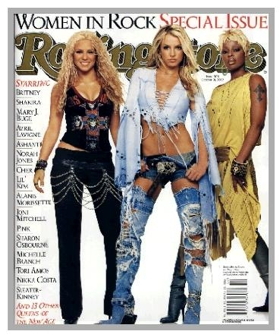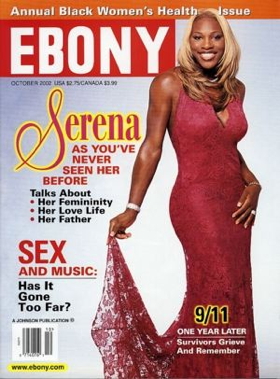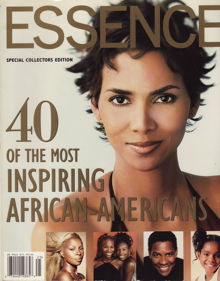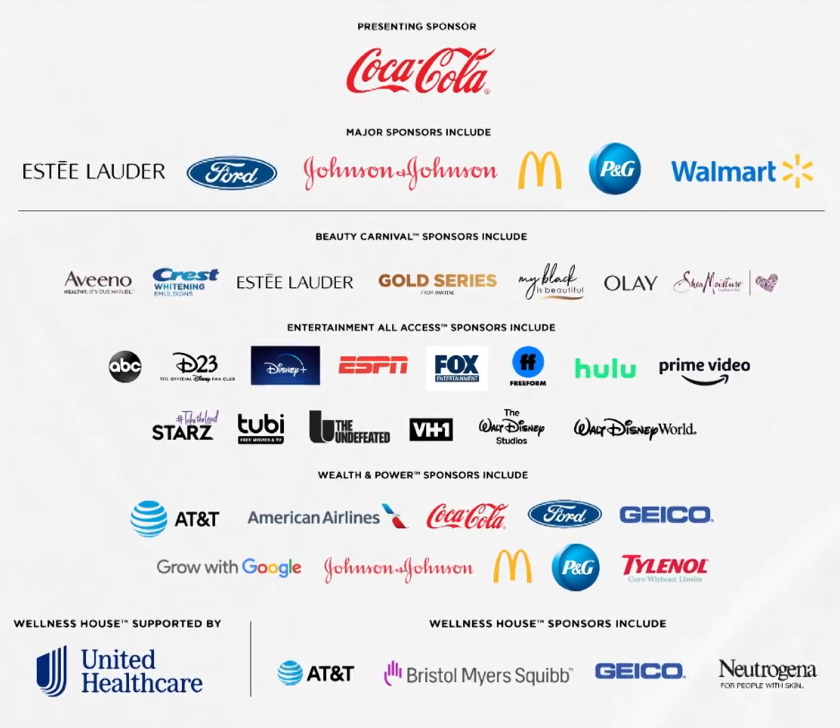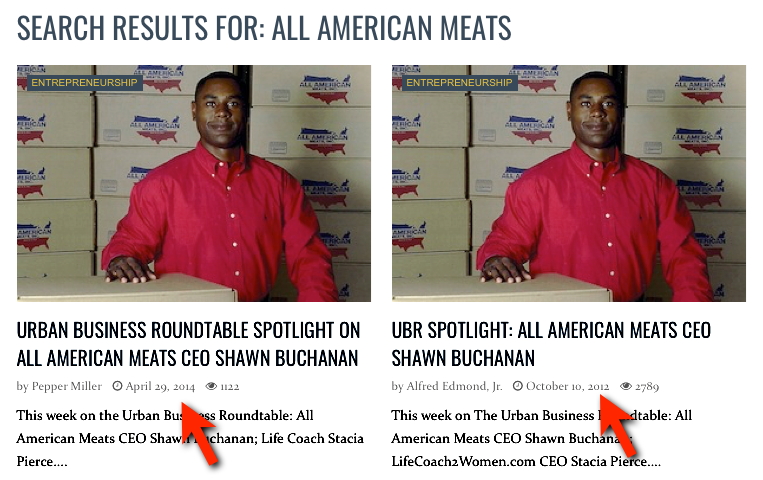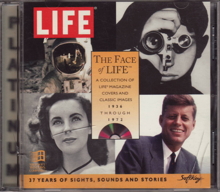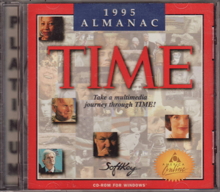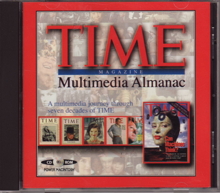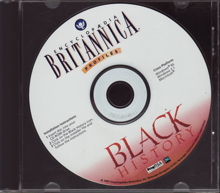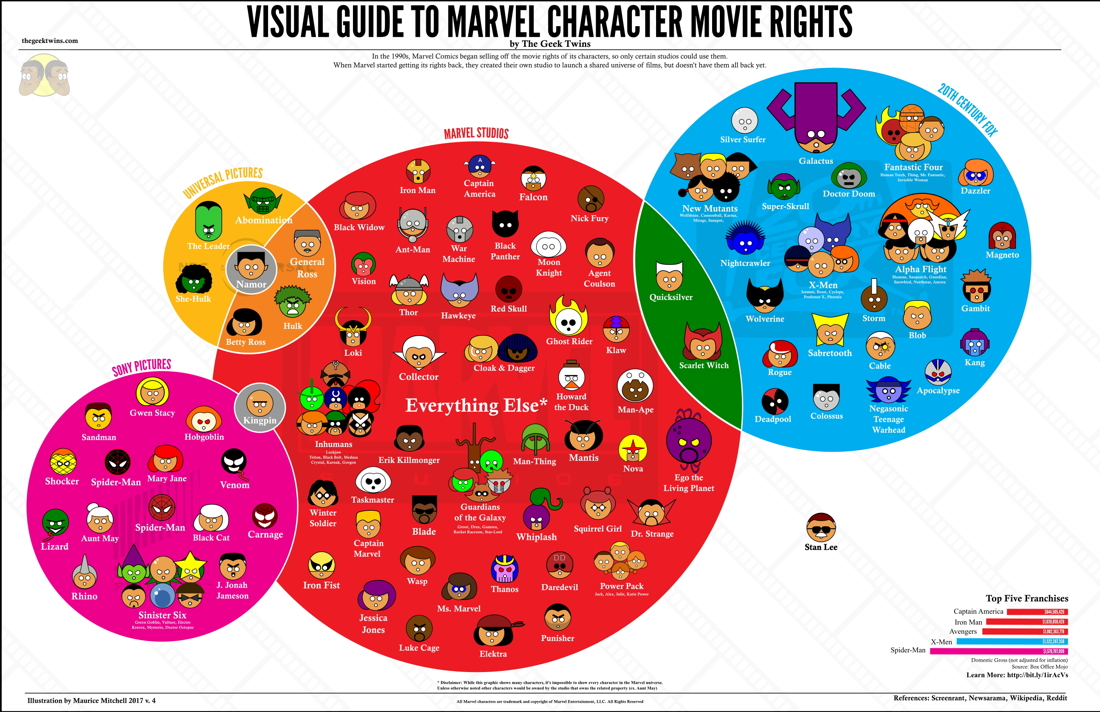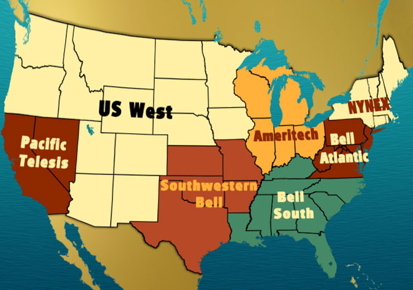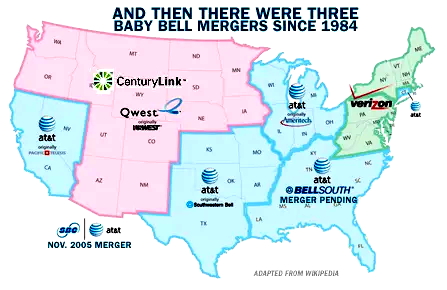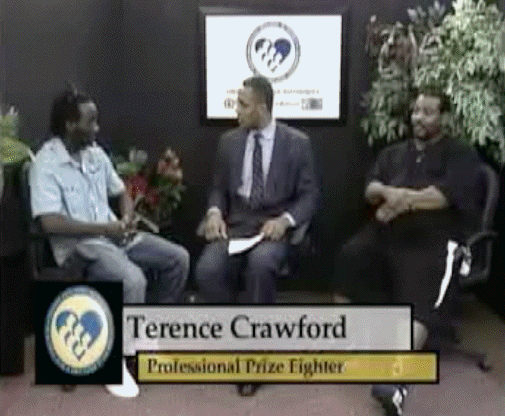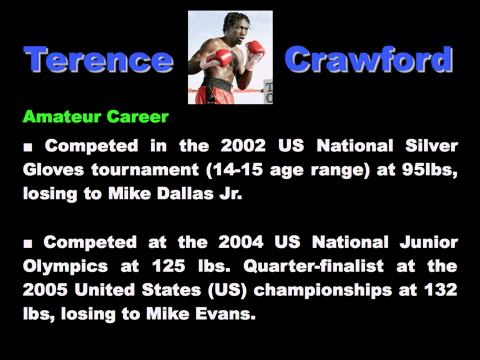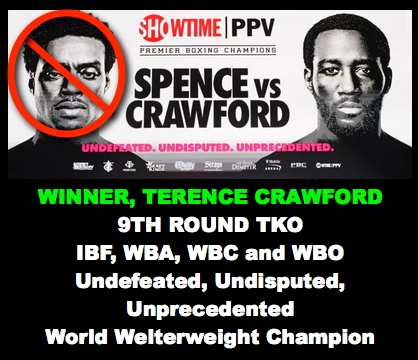
Are Black people stupid?
Part 4: Again, Don't Blame White People!
Born from the freedom recently given to college athletes enabling them to control the "commercialism" of their athleticism and related work product, NIL is an acronym for "name, image, and likeness," which has always been an extremely rare commodity for the overwhelming majority of Black people, because when compared to White people, Black people literally don't own squat.
One-(1) percent of Americans hold nearly 50% of the wealth, topping even the levels seen before the Great Depression in the 1920s (Davies, Sandstrom, Shorrocks, & Wolff, 2009; Keister, 2000; Wolff, 2002). Building a Better America - One Wealth Quintile at a Time, Michael I. Norton and Dan Ariely. As reported in January 2020 by inequality.org, for the first time in US history, the top twelve U.S. billionaires surpassed a combined wealth of $1 trillion. These 12 had a combined wealth of $1.015 trillion.
From the point of view of a pseudo-democratic self-governing republic, some consider this concentration of wealth represents an Oligarchic Twelve or a Despotic Dozen. Minus the aforementioned negative connotation, the Trillion Dollar Dozen who constantly get richer and richer are:
January 2020
inequality.orgJuly 2023
Bloomberg
10 Richest BillionairesJeff Bezos ($189.4b) Elon Musk ($232.4b) Bill Gates ($114b) Bernard Arnault ($204.1b) Mark Zuckerberg ($95.5b) Jeff Bezos ($154.6b) Warren Buffett ($80b) Bill Gates ($137.1b) Elon Musk ($73b) Larry Ellison ($132.0b) Steve Ballmer ($71b) Steve Ballmer ($119.3b) Larry Ellison ($70.9b) Warren Buffett ($116.4b) Larry Page ($67.4b) Larry Page ($109.9b) Sergey Brin ($65.6b) Mark Zuckerberg ($107.1b) Alice Walton ($62.5b) Sergey Brin ($104.4b) Jim Walton ($62.3b) Rob Walton ($62b)
Guess who "should" have been included on both of the above lists?
Berry Gordy John H. Johnson George E. Johnson Robert L. Johnson Earl G.
Graves Sr.Motown Johnson Publishing Johnson Products Company Black Entertainment Television Black
Enterprise
Back in the day, Berry Gordy, John H. Johnson, George E. Johnson, Robert L. Johnson, Earl G. Graves founder of Black Enterprise Magazine, and several other wealthy Black entrepreneurs could have coalesced their economic might and business acumen to form a Black-owned and Black-controlled version of Disney (223,000 employees, and owner of ABC-TV, ESPN, Marvel Comics, etc.); Warner Bros. Discovery (37,500 employees and owner of TimeWarner, HBO/Max, DC Comics, Warner Bros., CNN, etc.); Comcast (190,000 employees and owner of NBC-TV, Universal Films, USA Network, Bravo, etc.; and Paramount (190,00 employers and owner of CBS-TV, Paramount Films, Simon & Schuster publishing, etc.).In business, it's all about "exclusivity," and not "inclusiveness." A generation ago, due to the proprietary and "exclusive" Black consumer market developed and held by John Publishing's Jet and Ebony magazines, every major politician, White and Black, would intentionally include Jet and Ebony magazines for the strategic release and distribution of campaign and political information. Over the course of several decades, you'd literally see hundreds, thousands of photos and comments from White and Black politicians running for mayor, state legislatures, Congress, and the U.S. presidency. For Black people, publications like Jet, Ebony, and Black Stars (which focused only on Black musicians, actors, etc.) provided a great feeling of racial connection, belongingness, and continuity, because there were no nationally broadcast Black radio stations or Black television stations or internet social media (FaceBook.com, YouTube.com, etc.). BET came later.
Plus, keep in mind, throughout the 1940s, 1950s, and 1960s, White-owned and controlled mainstream media literally "banned" minorities from their advertising and program content; and even during and after the 1970s images of and content involving people of color was excluded from White-owned and controlled advertising content and reporting. The "standard of beauty," as iconically represented by Marilyn Monroe's blonde hair and blue eyes was determined by White-owned and controlled media - period. Today, due to changing racial demographics (as validated by the law of large numbers, and the Thucydides Trap), when the "minority population" evolves to become the "majority population" change is inevitable, and can no longer be easily ignored. Consequently, more "token" people of color are routinely included in content for both advertising and programming, but "ownership" remains in the control of "elite," politically powerful and affluent White people, primarily White men, and frequently Jewish men.
Neal Gabler's book, "An Empire of Their Own: How the Jews Invented Hollywood," details how Harry Cohn, William Fox, Carl Laemmle, Louis B. Mayer, Jack and Harry Warner, and Adolph Zucker created Hollywood, and how even to this day, their assessment of "American values" greatly influenced or dictated social policy and politics.
In "Hollywood" ultimate control has been and continues to be primarily dictated by White Jewish men. As published in the LA Times article, How deeply Jewish is Hollywood? C'mon - "When the studio chiefs took out a full-page ad in the Los Angeles Times a few weeks ago to demand that the Screen Actors Guild settle its contract, the open letter was signed by: News Corp. President Peter Chernin (Jewish), Paramount Pictures Chairman Brad Grey (Jewish), Walt Disney Co. Chief Executive Robert Iger (Jewish), Sony Pictures Chairman Michael Lynton (surprise, Dutch Jew), Warner Bros. Chairman Barry Meyer (Jewish), CBS Corp. Chief Executive Leslie Moonves (so Jewish his great uncle was the first prime minister of Israel), MGM Chairman Harry Sloan (Jewish) and NBC Universal Chief Executive Jeff Zucker (mega-Jewish). If either of the (Jewish) Weinstein brothers had signed, this group would have not only the power to shut down all film production but to form a minyan with enough Fiji water on hand to fill a mikvah." Source: Los Angeles Times, December 19, 2008, by JOEL STEIN
Being legally prohibited from ownership and/or participation in mainstream White-owned and controlled media, Black people created their own media. The success of many Black musical acts and companies, especially at Motown, Solar Records (Soul Train), Philadelphia International Records, etc., was largely due to constant coverage of their careers in Jet, Ebony, Black Stars, and other Black publications. Additionally, Johnson Products Company, which was located in Chicago when the television program "Soul Train" was launched, became a longtime sponsor of the show "Soul Train" until its cancellation. The aforementioned companies were all started by Black people, and eventually all were sold to White people, except for Johnson Products, when in March 2009, a consortium of African-American investment firms bought the company from White-owned Proctor & Gamble to reestablish it as a Black-owned company.Consider the following overview of two major Black-owned companies who could have lead and/or functioned as key players to coalesce Black businesses, through mergers and acquisitions, to create a major Black-owned multimedia conglomerate, and thereby seize and control the "narrative" involving Black people: Johnson Publishing and Black Enterprise.
JET Magazine, (covers presented below, click to enlarge), showcased contemporary Black politicians, business women and men, musical artists, actors, etc. Plus, the "JET Beauty" of the week tastefully showcased (at centerfold) the beauty of Black women, which White-owned "mainstream" publications, including Playboy Magazine, did not do.
Presented below each cover is the "JET Beauty" contained in that weekly publication.
JET Beauty's success prompted JPC to launch the JET Calendar with soft-core "pin-up" style full nudity Competitors offered explicit graphic nudity
Back in the day, and rarely even today, something you'd never see in a mainstream magazine, full-page advertisements featuring Wilt Chamberlain, Natalie Cole, and Magic Johnson on consecutive pages in the same issue!
“Gloom and Doom” Given the perpetual demise of the Black male image, in 2002 this writer wrote, "HOW BLACK WOMEN ARE KILLING THE BLACK RACE...WITH THEIR HAIR (And Why Black Men Can’t Do A Damn Thing About It); BLACK AIN’T BEAUTIFUL!, and THE BAB REPORT," and asked: Can Black people turn the tide of “Gloom and Doom” and revitalize their race or should Black people roll with the punches and resign to a point in time when the cliché “all good things must end” becomes a reality? Here’s a good point to introduce another equation, one for determining the rate of extinction for a given population. Is this possible? You decide. The following equation represents the stochastic extinction model that predicts species extinction rates that depend on the distribution of species and rates of habitat conversion:
where
E = number of extinct species;
a = total number of species that occurs in the area being considered;
bn = endemics (prevalent in or peculiar to a particular locality, region, or people) known to exist in multiple sites [a.k.a., the “distribution profile”];
C = land conversion factor (can either be the total proportion of land converted or a conversion rate per unit time); and
y = maximum number of categories consideredInstead of applying this equation to floral and other species, why not adapt it to predict the evolution of the Black population? To do so, we need two important pieces of information:
Question 1: Do we know the total number of species (distribution of species) that occurs in the area (The United States of America) being considered?
Answer: Yes! This information is already available through the U.S. Census Bureau!
In 1910, 90 percent of Blacks lived in the South. By 1940, Black migration to other parts of the U.S. reduced the percent of Blacks living in the South to 77 percent. By 1980, the percent of Blacks living in the South was reduced to 53 percent. According to the 2000 U.S. Census, 54 percent of the Black population lived in the South, 19 percent lived in the Midwest, 18 percent lived in the Northeast, and 10 percent lived in the West. In 2000, the ten largest places (cities) in total Black population were: New York, Los Angeles, Chicago, Houston, Philadelphia, Phoenix, San Diego, Dallas, San Antonio, Detroit, Baltimore, Memphis, Washington, DC, and New Orleans; andQuestion 2: Do we know the rate of conversion (loss or gain) in total habitat (rates of habitat conversion)?
Answer: Kinda! Before anyone, especially the U.S. Census Bureau, can determine total habitat conversion (loss or gain in population) the following problems must be eliminated from the current data collection methodology:
1. Base data from April 1, 1990 through January 1, 1999 cannot be used;
2. Projections must include the FACT that beginning with the 2000 census, U.S. citizens have the option of marking one or more of 14 boxes representing six races and subcategories or “some other race” for as many as 63 racial combinations [systems must first be established to measure expanded racial diversity before enabling];
3. The prevailing methodology cannot categorize any racial “mixture” containing “Black” as “Black” because, well, it’s RACIST. The “once a nigger...always always a nigger,” and “any part of nigger makes you a nigger” racist methodology isn’t applied universally by the U.S. government. What is the joining of a Asian and Native American? Once a chink, always a chink? Or, once a savage redskin, always a savage redskin?
Even the U.S. Food and Drug administration recognizes that after Dole mixes orange juice, with bananas, and pineapples
it’s no longer orange juice, and
it’s not banana juice, and
it’s not pineapple juice and,
most importantly, Dole can’t market and sell its combo drink as orange juice because
IT AIN’T ORANGE JUICE; and4. The discrepancy between how data is collected and reported must be corrected.
So, yes, in the absence of any changes to the above “Gloom and Doom” or other contributing factors, it’s possible to actually project either the extinction or near extinction of the Black race. The Black fertility rate is dropping, miscegenation can’t be ignored, and the African “feeder” group is dying-off in great numbers due to disease, starvation, war, etc. Plus, as detailed by the graphic below, when Black people literally "disappear" there's considerably less interest by law enforcement and mainstream White-owned media to prioritize finding missing Black people.
There will be a point in time when the failure of the Black race to repopulate itself results in the end of the Black race as we know it now. So, as illustrated below: if Black fertility and Black marriages continue to decrease, and if miscegenation (interracial marriages) and Black male mortality and high rates of incarceration continues to increase, eventually the Black population will decrease. It's basic math.
Clearly, the demise of the traditional Black family functions as protracted genocide for future generations!
As established during and after the end of slavery, the perpetually high rates of unemployment, incarceration, murder, infant mortality, and suicide of Black men has devastated the traditional Black family household, which used to include a Black male (father), Black female (mother), and two-(2) or three-(3) children. Ebony correctly predicted a constant increase in the number of unwed mothers, but failed to predict the perpetually increasing high rates of unwed Black mothers and the demise of Black marriage. Ebony projected Omaha's Black population would be 14.5% in 2000, but as as reported by Census.gov, Omaha's Black population has dropped to 12% and with the continued gentrification of North Omaha, high Black unemployment, high rates of incarceration for Black people, high rates of homicides, etc., the Black population in Omaha will continue to drop. In summary, when assessed against actual facts, Ebony's projections were far, far too conservative.
Johnson Publishing's Jet and Ebony magazines covered the same ground, but without the use of business language vernacular, such as return-on-investment (ROI), leverage debt buyout (LBO), initial public offering (IPO), etc., and the scope of reporting and analysis was not as robust or as detailed. However, despite these difference, both companies "brand" Black women and Black men with the same "look," which has less to do with the uniqueness, the "exclusiveness" of being Black, but more to do with assimilation into White-owned, "mainstream" media. Do Black businesses market to Black people to spur generational wealth amongst Black people, or as documented throughout U.S. history, do Black businesses market to Black people only to eventually turn this wealth over to White people?MARKETING THE BUSINESS OF "BLACKNESS" Ebony Magazine
March 2000Black Enterprise
March 2000
The need to be and look White is ingrained into the Black psyche!
• So ingrained that in 1905 Sarah Breedlove, better known as Madame C.J. Walker, became the first female Black millionaire with her famous metal heating combs and hair straightening products [http://madamcjwalker.com].
• So ingrained that in 1954, under the pretense of a $250.00 "vacation" loan from a finance company, George E. Johnson established Johnson Products with Ultra Wave, a hair straightener for men.
• So ingrained that in 1964 Edward and Bettiann Gardner founded Soft Sheen Products which became the #1 maker of ethnic hair care products in US and, rather ironically, in 1999 SOLD their company to Cosmair, a division of the White owned French cosmetics icon, L’Oreal. Obviously, the French believe they can do a much better job of selling the virtues of “how to look White by straightening the hair of Black women” than the previously Black owned company.
Even pre-teen Black girls are "brainwashed" to believe their natural hair isn't "lovely" and they can't be "lovely" until they get their hair relaxed . . . and straight like White girls.
Black women
look like this!
Arguably, they could be perceived as Hispanic / Latinas or White! Black and Proud?
Black men
look like this!
They can't be confused with any other males on the planet. Just ask any police officer!
Black men and women share the same genetic code. Of course, there are always exceptions, but for the most part Black women have hair just like Black men. It ain’t straight. It ain’t blonde. And no matter how many times you see Oprah do her white-girl-hair-flip, realize, it ain’t natural, it came out of a box, or hot iron curler, etc. Unfortunately, in an attempt to acquire and maintain “White looking hair” for many Black women, if not most, one often wonders what the hell happened with the touch-up?
Black and Proud? Really? Black people, especially Black women, don't want to look "Black," oh no, they've been successfully brainwashed to look White. Just look what happened to Michael Jackson. Clearly, the "evolved" Black "identity" means "we" should look as White as possible!
The Evolution of Michael "White Boy" Jackson
In their article, "Black or White," Avonie Brown and Laura Liebarson detail the historical experience of the need for Black people to become White. As clearly documented in skin bleaching advertisements directed at dark skinned Black people during the 1930s and 1940s (at right), it just wasn't "politically correct" to look too dark and nappy (the other "N" word). Unforunately, most Black people don't realize how they've been manipulated to straighten their hair, and to lighten their skin using chemicals or, as satirized in Spike Lee's 1988 movie, "School Daze, " by breading primarily with lighter-skinned "wannabe" Blacks (or White folks) instead of darker-skinned "jigaboo" Blacks in order to acquire god hair and good skin?
Not until as recently as 1992 was the sale of across-the-counter skin-bleaching creams containing hydroquinone, which is toxic and a potential carcinogen, banned in South Africa. Nevertheless, there continues to be an international market for the sale of dangerous skin-bleaching creams specifically targeted to ethnic groups of color.
• So ingrained that in 1968 Pro-Line Corporation of Dallas, Texas began its “commitment to excellence in ethnic hair care” by helping to straighten more of it.
• So ingrained that in 1973 Johnson Publishing Company (Jet, Ebony, etc.) founded Fashion Fair Cosmetics in response (who asked?) to the problems that women of color supposedly had in finding shades to match their rich skin tones (below).
vs. BLACK AND PROUD
THE STORY: Keyana sits patiently as her mother gently begins combing her hair. She's uncomfortable when her mother reaches tangled places, but her mother explains why Keyana is so lucky to have her kind of hair.
Text © 1998 by
Natasha Anastasia Tarpley; Illustrations © 1998 by
E.B. Lewis
In trying to capture the evolving state of Black hair care where better to look than, of course, the legendary icon for Black identity, Jet Magazine. Frankly, it makes sense to review the aforementioned February 21, 2000 issue of Jet Magazine because the feature story is “The Hottest Females In Rap Music.” Rap, as I’m sure you’re aware, is yet another branch in the evolution of Black music and, given the backdrop of 1960s “Black Is Beautiful” movement, just how far have Black women come to embrace their ethnicity? The cover featured (at right):
• Eve, her hair is dyed platinum blonde;
• Lil’ Kim, appears to be wearing a platinum blonde wig;
• Foxy Brown, has her hair processed and it looks greasy; and
• Solé, either has her hair processed or, appears to have “good hair!”
If Jet Magazine is a mirror of Black society, then surely it must be publishing a fair representation of contemporary Black America. Therefore, looking even closer at this issue, page by page, every article, every advertisement, should provide a snap shot to how we look and how Black people define themselves. Unfortunately, the images of Black women as presented by Jet magazine bear little resemblance to the prideful “Black Is Beautiful” spirit of the 1960s.
Many Black women believe in order to look their best they must have processed/straight hair. Perhaps, you've heard Black women make the following statement, "I'd rather be dead than go on a job interview with nappy (unprocessed, unstraightened) hair. I'll never get hired looking ghetto!"
Enter Sophisticate's BLACK HAIR Styles and Care Guide Magazine (at right), with its primary focus to market, coerce, motivate, influence, promote, and sell hair care products to chemically straighten or color the hair of Black women in compliance with White standards of beauty. It's the best selling Black hair magazine and it's owned by White people (Associated Publications, Inc.).
Take a close look at the history of Black women who’ve been “anointed” by White male controlled designers and magazine editors as fashion models. Historically and today, as presented in “Skin Deep: Inside the World of Black Fashion Models” [©1998 by former Black fashion model Barbara Summers], the clear majority of Black women who convey their “Blackness” do so with straight, processed hair.
But shouldn’t Black women who model for White owned fashion magazines like Vogue, Comopolitan, and Elle be expected to present themselves in a manner palatable to White audiences? Okay, then, if this makes sense, how do we explain the predilection for Black women to present themselves before Black audiences the same way they present themselves to White audiences? Easy. White advertisers continue to be the bread-and-butter for all Black oriented publications, Black owned or not. It’s a sad statement when the majority of women from one culture systematically and blindly change their image - their hair - in preference and subjugation to another culture. In this regard, consider Black women like supermodel Donyale Luna (August 31, 1945 – May 17, 1979) who truly disliked being Black.
In 1966, Donyale Luna became the first black model to appear on the cover of Vogue. When Luna was asked whether or not her appearances in Hollywood films would benefit the cause of black actresses, Luna answered, "If it brings about more jobs for Mexicans, Asians, Native Americans, Africans, groovy. It could be good, it could be bad. I couldn't care less."
Lil' Kim
by Colin Bell/Retna from
"Black Beauty: A History and a Celebration," © 2000 by Ben Arogundade
Mary J. Blige,
third-Blonde on the right.
Serena
"Blondes Have More Fun"
Williams
if Black people don't want to look "Black?"
As usual, the
overwhelming majority
of the most "inspiring" Black women have
straight, processed
hair.
How can Black businesses prosper when ultimately
the "purse strings" are controlled by White people?THE POINT?
QUESTION: If you don't own and/or control your "identity and self-worth," including the print, photo, audio, and video images of yourself and your race how can you possibly control the character, scope, and accuracy of the "narrative" of your business affairs and what people say about you?
RESPONSE: You don't.
QUESTION: With regard to the Black Enterprise Top 100 Black Businesses, what specifically has Black Enterprise done to increase Black business growth throughout the United States, and in particular, in cities with the largest percent of Black residents?
U.S. Cities with the largest percent of Black residents
93.26% Black 80.45% Black 80.38% Black 78.47% Black 69.82% Black South Fulton, GA Jackson, MS Detroit, MI Gary, IN Birmingham, AL
Companies Listed on BE's Top 100
REVENUE REVENUE ($M) H. J. Russell & Co. Jackmont Hospitality Inc. B & S Electric Supply Co. Inc. Sudu Logistics Inc. Benton-Georgia L.L.C. C. D. Moody Construction Co. Inc. Engineering Design Technologies Inc. TME Enterprises 1 Ltd.‡
Companies Listed on BE's Top 100
REVENUE MINACT Inc.
Companies Listed on BE's Top 100
REVENUE Arcade Travel Inc. †† Bridgewater Interiors L.L.C. Global Automotive Alliance Corp. Devon Industrial Group L.L.C. James Group International Inc. MCL JASCO Inc. Rickman Enterprise Group L.L.C. Chemico L.L.C. Advantage Living Centers*** Epitec Inc. w3r Consulting TAG Holdings L.L.C.
Companies Listed on BE's Top 100
REVENUE Powers & Sons Construction Co. Inc.
Companies Listed on BE's Top 100
REVENUE Trillion Communications Corp. 66.97% Black 63.34% Black 61.91% Black 60.42% Black 58.61% Black Miami Garden, FL Memphis, TN Montgomery, AL Baltimore, NY Augusta, GA None.
Companies Listed on BE's Top 100
Companies Listed on BE's Top 100
REVENUE Castle Black Construction 4.7
Companies Listed on BE's Top 100None.
Companies Listed on BE's Top 100None.
Companies Listed on BE's Top 100None.
RESPONSE: Other than publishing very generic "how to" rhetoric on financial wealth building, emotional wellbeing, Black business "sisterhood," etc., Black Enterprise does not actually "build" Black businesses through cross-marketing of products and services, identifying and engaging strategic mergers and acquisitions, or "branding" or re-branding markets or industries to acquire, sustain, and increase the sovereignty of Black-owned business. With regard to "business expertise" to build, sustain, and grow businesses, Black Enterprise possesses nothing more than false bravo. During its watch, what happened? Motown; gone. Johnson Publications; gone. Tim Reid's New Millennium Studios; gone. Black Enterprise primarily reports business matters as the "tail" to the dominant "dog" of culture, lifestyles, sports, and entertainment; but it does not function to build, sustain, and grow Black-owned business enterprises.
For example, given the notoriety established by Black Enterprise during the past fifty-(50) years, U.S. cities with the largest percent of Black residents, especially in the south (Jackson, Mississippi; Montgomery, Alabama; Augusta, Georgia, etc.), should be ripe to develop Black businesses, but as validated by the U.S. Census, "elite," politically powerful and affluent White people, primarily White men, continue to rule all aspects of businesses in the south, and likewise, southern cities are not represented (ignored) by the Black Enterprise Top 100 Black Businesses.
U.S. Census - Most recent year 2017 City % Black # Minority
Business# Non-Minority Businesses QUESTIONS Jackson, MS
80.45 479 2,109
Given the "abundance" of Black people, why are the majority of businesses owned by White people? Has Black Enterprise deployed its business acumen to address this disparity?
69.82 646 3,239
Given the "abundance" of Black people, why are the majority of businesses owned by White people? Has Black Enterprise deployed its business acumen to address this disparity?
66.97 671 539
Why are there more minority businesses than non-minority? What percent of these businesses are Latino versus Black?
61.91 636 2,512
Given the "abundance" of Black people, why are the majority of businesses owned by White people? Has Black Enterprise deployed its business acumen to address this disparity?
QUESTION: With regard to the Black Enterprise Top 100 Black Businesses, what specifically has Black Enterprise done to increase Black business growth throughout the United States, and in particular, in U.S. cities with the largest populations?
1 2 3 4 5 New York, NY Los Angeles, CA Chicago, IL Houston, TX Phoenix, AZ
Companies Listed on
BE's Top 100
REVENUE Golden Krust Franchising Inc.‡‡ Skyline Industries LLC McKissack & McKissack Black Enterprise
Companies Listed on
BE's Top 100
REVENUE The Client Base Funding Group Inc.†††
Companies Listed on
BE's Top 100
REVENUE Harpo Inc. UJAMAA Construction Inc. Baldwin Richardson Foods Co. The Will Group
Companies Listed on
BE's Top 100
REVENUE The Lewis Group L.L.P. ChaseSource L.P. Summus Industries Inc.
Companies Listed on
BE's Top 100None.
6 7 8 9 10 Philadelphia, PA San Antonio, TX San Diego, CA Dallas, TX San Jose, CA
Companies Listed on
BE's Top 100
REVENUE PRWT Services Inc.
Companies Listed on
BE's Top 100
REVENUE Millennium Steel of Texas
Companies Listed on
BE's Top 100None.
Companies Listed on
BE's Top 100
REVENUE Parrish Restaurants Ltd.
Companies Listed on
BE's Top 100
REVENUE Aire Sheet Metal Inc. Rocket Lawyer Overland-Tandberg Mosaic Global Transportation Inc. Cerulean Global Services L.L.C.
RESPONSE: Again, other than publishing very generic "how to" rhetoric on financial wealth building, emotional wellbeing, Black business "sisterhood," etc., Black Enterprise does not actually "build" Black businesses through cross-marketing of products and services, identifying and engaging strategic mergers and acquisitions, or "branding" or re-branding markets or industries to acquire, sustain, and increase the sovereignty of Black-owned business. With regard to "business expertise" to build, sustain, and grow businesses, Black Enterprise possesses nothing more than false bravo. During its watch, what happened? Motown; gone. Johnson Publications; gone. Tim Reid's New Millennium Studios; gone. Black Enterprise primarily reports business matters as the "tail" to the dominant "dog" of culture, lifestyles, sports, and entertainment; but it does not function to build, sustain, and grow Black-owned business enterprises.The aggregate of Black advertisers was not enough to sustain the existence of Johnson Publishing. Likewise, without major advertising support from White companies, Black Enterprise cannot sustain itself, which puts its future at risk. Notably, when White people become a minority population due to changing demographics, White companies will likely transition their advertising dollars to give greater support to sustain White-owned companies. Black Enterprise "branded" itself as the pinnacle of expertise for Black business, but absent from its business model is . . .
"We have the power of numbers, the power of organization, and the power of spirit. Let me explain what I mean. Sixteen million people are a force to be reckoned with, and indeed there are many nations in the U.N. whose numbers are less."
Paul Robeson
"Here I Stand" page 92, fifth paragraph © 1958 by Paul Robeson
"How long are you gonna sit around begging White people to do for us when we have the power to do for ourselves?"
Minister Louis Farrakhan
Tavis Smiley's 2010 Black leadership conference, "The Black Agenda."
Trip Reynolds
Are Black People Stupid?" tripoetry.com © 2020
. . . absent from the Black Enterprise business model is a robust and independent aggregate of Black advertisers to sustain its existence. Do all of the Top 100 Largest Black Businesses place monthly advertisements in the magazine, and if not, why not?
For example, ranked at number 48, "All American Meats, Inc., is the only Omaha-based Black-owned company listed in the Black Enterprise Top 100 Largest Black Businesses.
A keyword search of blackenterprise.com revealed the most recent "spotlight" on All American Meats, Inc. occurred in 2012 and 2014. Clearly, it's not particularly attentive to allow nearly 10 years to lapse since recognizing one of the Top 50 Black-owned companies in the U.S.
Where's regular and robust promotion by metro Omaha's Black-owned media or White-owned media? Unfortunately, All American Meats has a demonstrated practice of not returning phone calls or emails, and its web site is archaic and not interactive.
Simply put, if the "idea" is to promote Black businesses (and make money), then "promote" Black businesses, and do so simultaneously with robust cross-marketing and multimedia campaigns that include web sites, businesses partners, vendors, suppliers, advertisers, AA/EEO commitments, news, cultural and social events, email campaigns, scheduled discounts on products and services, etc.
For example, imagine the greater benefit to Black-owned businesses, if the Black Enterprise Top 100 Largest Black Businesses presented its roll call of Black-owned businesses in the proprietary matrix below.
800-242-1835
I’M A BIG FAN
I’m a big fan of Joint Vibrance, and its natural ingredients. I can feel the difference compared to taking another supplement. My knees feel a lot better,
and I'm back to running comfortably!Jerome R.
Verified Customer
Vibrant Health (New England Greens L.L.C.) ranked 81st of 100 Largest Black-owned business in the Unite States by Black Enterprise Magazine
Rank: 81 Revenue (in millions): $24.300
Employees: 30Type of Business: Nutritional Supplements
To learn more, please click here.Our award-winning wellness products are the highest-quality, most comprehensive supplements on the market. The world’s first green superfood, Green Vibrance
is also the best — evidenced by the 22 (and counting) awards it has won.
Subscribe & Save + Free Shipping!!!
Partner with Vibrant Health in support of local, national, and international health and fitness events:3 July to
August 11
Dog Days of Summer1 August
National Mountain Climbing Day5th and 6th
August
Fit Expo AnaheimInstead, Black Enterprise gives you a boring list that does not function as a catalyst to build, sustain, and grow Black-owned businesses.
Keep in mind, the demise of Johnson Publications did not occur overnight, and unfortunately, Johnson Publications opted-out of marketing efforts it could have used to monetize their content in both the short and long term. For example, data collection and management is extremely important in business, education, and entertainment, because there's always a need to access facts, photos, and to conduct and validate research. Recognizing the aforementioned, many content providers began releasing some or all of their content on CD-Roms, and eventually via their web sites, or "free downloads" via cloud-based proprietary access including YouTube.com, the Internet Archive, or SaaS (Software as a Service) platforms; and this writer has used all of the aforementioned. In addition to the CD-Roms pictured below, this writer also possesses: the entire National Geographic catalogue; Variety Newspaper Volume 1 through 4; Star Trek Omnipedia; and many other data resources. Johnson Publishing could have selectively:
1. released and/or licensed Volumes 1 through 20 or more;
2. targeted different audiences, from education to business to entertainment; and
3. schedule the release and/or license over a period of years.
Doing the aforementioned while retaining its proprietary and very exclusive content as a vibrant revenue stream; but it did not do so.
Instead of building, sustaining, and growing Johnson Publishing's legendary Black-owned businesses: (a) In December 2008, Google announced that it was scanning back issues for Google Book Search, all issues from November 1959 to December 2008 were made available for free; and (b) Johnson Publishing sold the Ebony/Jet photo archives in July 2019 for a measly $30 million to a group of art and educational foundations.
Where's the
CD-Rom containing
the "selected"
digital library
of JET, Ebony, and
Black Stars
magazines?
Licensing content is not an original idea; in fact, prior to being purchased by Disney, Marvel Comics licensed many of its characters to Sony, Fox, and Universal. However, in 2009 Disney purchased Marvel and subsequently purchased Fox, and now has ownership and total control of "all" Marvel properties. Keep in mind, just like China only "leased" Hong Kong to the United Kingdom for ninety-nine-(99) years, Marvel only "licensed" its content, it did not "sell" anything. Conversely, instead of sustaining ownership and providing generational wealth, Black-owned businesses frequently "give-a-way" their content or sell it, typically to "elite," politically powerful and affluent White people. Are Black people stupid?
Note the graphic below (click to enlarge).
QUESTION: If you (Black people) don't own and/or control the print, photo and video images of yourself and your race how can you possibly control the character, scope, and accuracy of the "narrative" of what people say about you?RESPONSE: You don't. "Elite," politically powerful and affluent White people in Florida, mostly White men, just passed a state law for public schools to teach slavery was a good thing, a benefit to slaves, because it taught slaves (before or while being raped, beaten, shot, hung, or eventually killed) various "skills," for which they were never compensated . . . because they were SLAVES!
Slavery is just as funny as the Holocaust, really?
Denzel WashingtonWhen "they" control the "look and feel" and "they" write the "narrative," then they'll tell YOU slavery was a good thing for their niggers!
"Why doesn't a slave run from one plantation to another plantation,
because the master over there might be nicer?"
Dave Chappellee
What, you think "things" changed after the murder of Will Brown in Omaha, Nebraska in 1919, or Henry "Peg" Gilbert in Troup County, Georgia in 1947, or Emmett Till in Money, Mississippi in 1955, or Amadou Diallo in New York, New York in 1999, or Tamir Rice in Cleveland, Ohio in 2014, or of George Floyd in Minneapolis, Minnesota in 2020?
In 2023, mainstream, White-owned and controlled media still refuse to report "our story, our narrative." If "we" don't care, why should they? Answer: They don't. Nothing changes. Case in point:
“Horrendous”: Black Men Tortured by
White Mississippi Police “Goon Squad” React to Guilty Pleas
Imagine, just imagine the economic benefits to Black people if Black people owned and controlled all aspects of the creative process (content, acting, singing, college and professional sports, etc.), production (print/publishing, film, and broadcast radio and television), and distribution (television, movie theaters, stage, concerts and stadiums, and internet streaming, marketing and public relations, etc.).
In business, it's all about "exclusivity," and not "inclusiveness." You'll never see three-(3) book stores located in the same block selling the same kinds of books. It's essentially impossible for a business to control the character and scope of its current and projected growth without controlling the scale (size of local, state, and national U.S. domestic and international operations) and controlling the character (types, distribution, and marketing of business products and services). Monopolies exist for a reason, and mergers and acquisitions support and sustain control and exclusivity, which is why iheartmedia, with 850+ full-power AM and FM radio stations, is the country's largest owner of radio stations. iheartmedia literally "controls" what the overwhelming majority of U.S. citizens "hear" about . . . everything. Likewise, Union Pacific, TimeWarner, Disney, etc., all sustain their dominance by practicing the "capitalist business template" born of colonialism, as represented and sustained by France's perpetual colonization and enslavement of fourteen-(14) African nations. Consider the evolution of the AT&T monopoly that despite the political and media hype ending the monopoly would be better for consumers, AT&T and the "Baby Bells" did not drop prices, improve technology, or increase competition:
THEN NOW
As reported by Bruce Kushnick, in 1984, the original AT&T (“Ma Bell”) was broken up because of its monopoly power over America’s telecommunications services and critical infrastructure. Known as “Divestiture”, the company controlled most of America’s wireline services as well as “long distance”, (calls that cross state lines). GTE, SNET and Alltel were then independent, incumbent telecom utilities and covered 15–20% of US territories. But, by the 1980’s it was clear that America needed competition to bring new and innovative services, as well as lower prices, especially for long distance.After years of legal wranglings and cases, (one of which involved a long distance upstart, MCI) seven ‘Baby Bells” were created. Known as “RBOCs”, “Regional Bell Holding Companies”, each regional Bell would control a group of states. Meanwhile, AT&T was spun off and it kept the long distance business and would later also offer internet and local phone service, as would MCI.
AT&T = SBC, Southwestern Bell, Pacific Telesis, SNET, Ameritech, BellSouth and AT&T.
AT&T Inc. also acquired Time Warner in 2016, with the proposed merger confirmed on June 12, 2018 and the aim of making AT&T Inc. the largest and controlling shareholder of Time Warner, which it then rebranded as WarnerMedia in 2018. The company later withdrew its equity stake in WarnerMedia in 2022 and merged it with Discovery, Inc. to create Warner Bros. Discovery, divesting itself of its media arm.
Verizon = Bell Atlantic, NYNEX, GTE, Alltel, and MCI
In 2015, Verizon expanded into content ownership by acquiring AOL, and two years later, it acquired Yahoo! Inc. AOL and Yahoo were amalgamated into a new division named Oath Inc., which was rebranded as Verizon Media in January 2019, and was spun off and rebranded to Yahoo after its sale to Apollo Global Management.
Lumen Technologies (CenturyLink) = US West turned into Qwest
On September 14, 2020, CenturyLink, Inc announced that it had changed its name to Lumen Technologies, Inc.[65] Effective with the opening of the trading day on Sept. 18, 2020, the company stock ticker changed from CTL to LUMN. The CenturyLink brand will continue to be the customer-facing brand for traditional copper-based services. Fiber-based products and services will use the brand Quantum Fiber.
Before it was sold to White-owned Paramount, BET was the most dominate and successful Black-owned broadcast media; but prior to its purchase BET's owner, Robert Johnson, clearly didn't learn from Paramount's recent past on how to build, sustain, and grow his Black-owned businesses. As reported by David Sims in the Atlantic on August 19, 2019:
The long history of CBS and Viacom merging, splitting up, and getting back together could be fodder for a juicy romance novel if it weren’t so dully corporate. Viacom (originally named CBS company by CBS in 1952 and spun off in 1971 because of a now-defunct law barring networks from owning syndicators. It grew so large on its own that Viacom, at one point, owned Paramount Pictures, Blockbuster Video, and, in 1999, CBS itself, merging back with its old corporate parent only to split apart again in 2005. Now the two companies are uniting again, but this time as an act of survival. This now official merger (announced last week) is about amassing enough capital to do battle with the giants of the media world, from old rivals Disney and WarnerMedia to tech juggernauts such as Netflix and Amazon. The newly monikered ViacomCBS will encompass CBS channels (including the Showtime network and The CW) and Viacom holdings such as Paramount, MTV, Nickelodeon, and Comedy Central. That’s big, but the CEO, Shari Redstone, has made it clear that she wants to get bigger.
“My father once said, ‘Content is king,’ and never has that been more true than today,” Redstone said in a statement, referring to her father, Sumner Redstone, who once presided over the CBS/Viacom empire. “We will establish a worldclass, multiplatform media organization that is well positioned for growth in a rapidly transforming industry.” At one point, she had considered selling her empire to a larger company, according to Reuters, but is now looking to potentially acquire the Discovery network or part of Sony Entertainment.
Robert Johnson did not want BET to "survive" as a Black-owned company!
Berry Gordy did not want Motown to "survive" as a Black-owned company!
Again, do Black businesses market to Black people to spur generational wealth amongst Black people, or as documented throughout U.S. history, do Black businesses market to Black people only to eventually turn this wealth over to White people?Imagine, if Black people used business "ownership" to pass down wealth from generation-to-generation (generational wealth), which is an extremely common practice for the overwhelming majority of White people (i.e., Sam Walton, Joseph P. Kennedy Sr., Jack L. Warner, Walt Disney) who sustain ownership of residential and commercial property; conversely, Black people were and remain legally and perpetually denied access to generational wealth from slavery to Jim Crow to redlining to discriminatory housing practices to high unemployment and through mass incarceration.
NEWS FLASH: Attention Black people, "elite," politically powerful and affluent White people, especially White men have NEVER allowed you access to participate as an "equal" participant in any aspect of business, politics, education, etc., so stop pretending or hoping for something that does not exist.
FACT 1: In 1860, 98% of all Blacks in America worked for White people. In 2001, 98% of all Blacks in America still work for white people. Source: https://powernomics.com/
QUESTION 1: Your Ancestors Were Slaves. Who owns the photos of them, and if and where the photos can be distributed?
RESPONSE: The slave owner, and the descendants of the slave owners who are typically "elite," politically powerful and affluent White people, primarily White men, who own and control 98% of everything in the United States of America.
FACT 2: Unless stipulated an executed "work for hire" contract, the person who hits the shutter button and takes the photograph, video, or film is the one who owns the copyright on the image. That’s 100 percent the law, and it’s been the law forever. Source: U.S. Copyright Law and nytimes.com.
QUESTION 2: Do White people own more images (photos and videos) of Black people than similar content owned by Black people?
RESPONSE: Yes, which includes content from every Hollywood film studio, television network, magazines (Time, Life, Look, etc.); and
>> Getty opens access to 30,000 images of black diaspora in UK and US.
>> Getty gives $30M to digitize Black life photo archive for the jointly owned Smithsonian National Museum of African American History and Culture and the Getty Research Institute
>> White-owned and controlled iHeartMedia, Inc. did NOT recently create its "Black Information Network" to make money for Black people.
Why should it matter? Upon becoming rich, at best Black professional athletes think "small" to become team owners instead of collectively owning an entire league. Oprah made two rich White men (Dr. Phil and Dr. Oz) even richer, but made no such "public effort" for Black men and Black women. The only Black person who truly appears to understand the "big picture" scale of multimedia is Byron Allen Founder, Chairman, and Chief Executive Officer of Entertainment Studios, Inc., yet even his senior leadership team is mostly White; just like Berry Gordy's Motown.
What if? What might happen, if through mergers and acquisitions, a Black-owned multimedia was formed that included:
Entertainment Studios, Inc. (Byron Allen)
Urban One (Cathy Hughes)
Aspire TV (Magic Johnson)
Black Enterprise (Earl Graves, Jr.)
Ebony (Eden Bridgman)
OWN (Oprah Winfrey Network) is primarily the property of White-owned Discovery, Inc., and minority owner Harpo Productions. Oprah Winfrey is contracted with the channel through at least 2025.
Tyler Perry Studios (Tyler Perry)
Bounce TV - Founded by Martin Luther King III, Andrew Young, and Andrew "Bo" Young III, is a property of White-owned E. W. Scripps Company.
Plus, what if the "A-List" of Black musicians, actors, actresses, comedians, etc. (Denzel Washington, Viola Davis, Morgan Freeman, Oprah, Jamie Foxx, Halle Berry, Kevin Hart, Angela Bassett, Chris Rock, Phyllis Yvonne Stickney, Dave Chappelle, Beyoncé, Kanye West, Taraji P. Henson, Jay-Z, Gabrielle Union, Samuel L. Jackson, Wanda Sykes, Laurence Fishburne, Regina King, Will Smith, Sanaa Lathan, Eddie Murphy, Sommore, Katt Williams, Tiffany Haddish, Earthquake, Maya Rudolph, Godfrey, Yvonne Orji, etc.), were all signed to "exclusive" representation and performance to this Black-owned media conglomerate, but unlike the old "Hollywood" system, Black artist would actually own all or a percent of their content.
Of course, Black people with pertinent business acumen should be added to the above list. But, Black people actually working together? Is that possible? Or, just the pathetic, very ugly assessment of how "Willie Lynch" inspired the stupidity and failure of Black people to work together?
Every time, every time Black people "integrate" into White society they eventually relinquish (give up) ownership and control to White people, such as Motown, Soft Sheen, Negro Baseball, Black Entertainment Television, etc. If Black people really wanted to "integrate" into White society, isn't it about time rich Black people pooled their resources and business acumen to buy Disney, AT&T, or Comcast? Perhaps, you haven't been paying attention, but this is exactly what the Chinese have been doing, duh! Just like Lenovo acquired IBM's personal computer business in 2005 and acquired its Intel-based server business in 2014, all of the following companies are Chinese owned and controlled.
To see what Black people have accomplished by not working together, click here.
Meanwhile, locally, as represented by the images of Omaha's boxing champion Terence Crawford being interviewed in 2009 in the CTI22 studio (at right), in the wake of Black people failing to support CTI22's continued existence and commitment to control the character, scope, and accuracy of the "narrative" of Black people, as usual, White-owned media, KMTV Channel 3, is telling the story their way. Yes, there's a difference.
Imagine, just imagine the economic benefits to Black people if local Black-owned/controlled media coalesced their print, broadcast radio, and social media platforms to jointly execute a media relations campaign to strategically promote Terence Crawford and B&B Sports Academy, which would function as a template to promote other events of particular interest to Black people, Black businesses, and concerns involving the Black community! What? You don't get it?
In business, it's all about "exclusivity," and not "inclusiveness." That's why the NBA is only broadcast on TNT and ABC/ESPN. That's why the Olympics and USA Track and Field (USATF) are only broadcast on NBC-TV/Peacock. To use "exclusive" content on other media platforms a "licensing fee" must be paid. That's what White people do! Get it?
Clearly, if a consortium of local Black-owned/controlled media acquired the "exclusive" right to represent the name, image, and likeness (NIL) of Terence Crawford, which also provides compensation to Crawford, the White-owned/controlled media would have to acquire permission from and pay licensing fees to . . . Black people . . . Black people who, as defined and approved by Crawford, will ultimately control the "narrative" about Terence Crawford.
The prevailing practice only empowers White-owned media Showtime, which is owned by Paramount/CBS, to control broadcast rights and NIL for the "Terence Crawford versus Error Spence" fight, and receive $84.99 per pay-per-view admission for the fight. Crawford and Spence will be paid no less than $25 million each, but based on a minimum of one-million projected PPV (i.e., $84,990,000) plus other revenue streams (merchandise, advertising, film, etc.), who made more money from the fight, Black people or White people? Who makes more money from the NBA (75% of athletes are Black) and from the NFL (70% of athletes are Black), White people or Black people? Get it?
"How long are you gonna sit around begging White people
to do for us when we have the power to do for ourselves?"
Minister Louis Farrakhan
Tavis Smiley's 2010 Black leadership conference,
"The Black Agenda."Again, to see what Black people have accomplished by not working together, click here.
Are Black people stupid?Again, when White people make Black people as rich as Oprah Winfrey, or Michael Jordan, or Berry Gordy, or Robert Johnson and so many others, and these rich Black people fail to align themselves to create dynamic business enterprises to uniquely advance the socio-economic status of other Black people and create generational wealth, then yes, these Black people are not just Uncle Tom's, egotistical, stingy, and narcissistic, they are also stupid . . . and weak . . . cowards . . . and not deserving of any respect or idolatry.
By the way, did this writer contact Ebony for their input prior to writing this editorial? Yes, but they elected not to respond to emails, phone calls, or certified letters. Did this writer contact Black Enterprise for their input prior to writing this editorial? Yes, but they elected not to respond to emails, phone calls, or certified letters.
I welcome your feedback.For Part 1, click here.
For Part 2, click here.
For Part 3, click here.
For Part 5, click here.
Trip Reynolds
trip.reynolds@yahoo.com
![]()
 |
Reynolds' Rap First Amendment to the United States Constitution - Congress shall make no law respecting an establishment of religion, or prohibiting the free exercise thereof; or abridging the freedom of speech, or of the press; or the right of the people peaceably to assemble, and to petition the Government for a redress of grievances. |
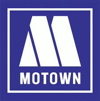




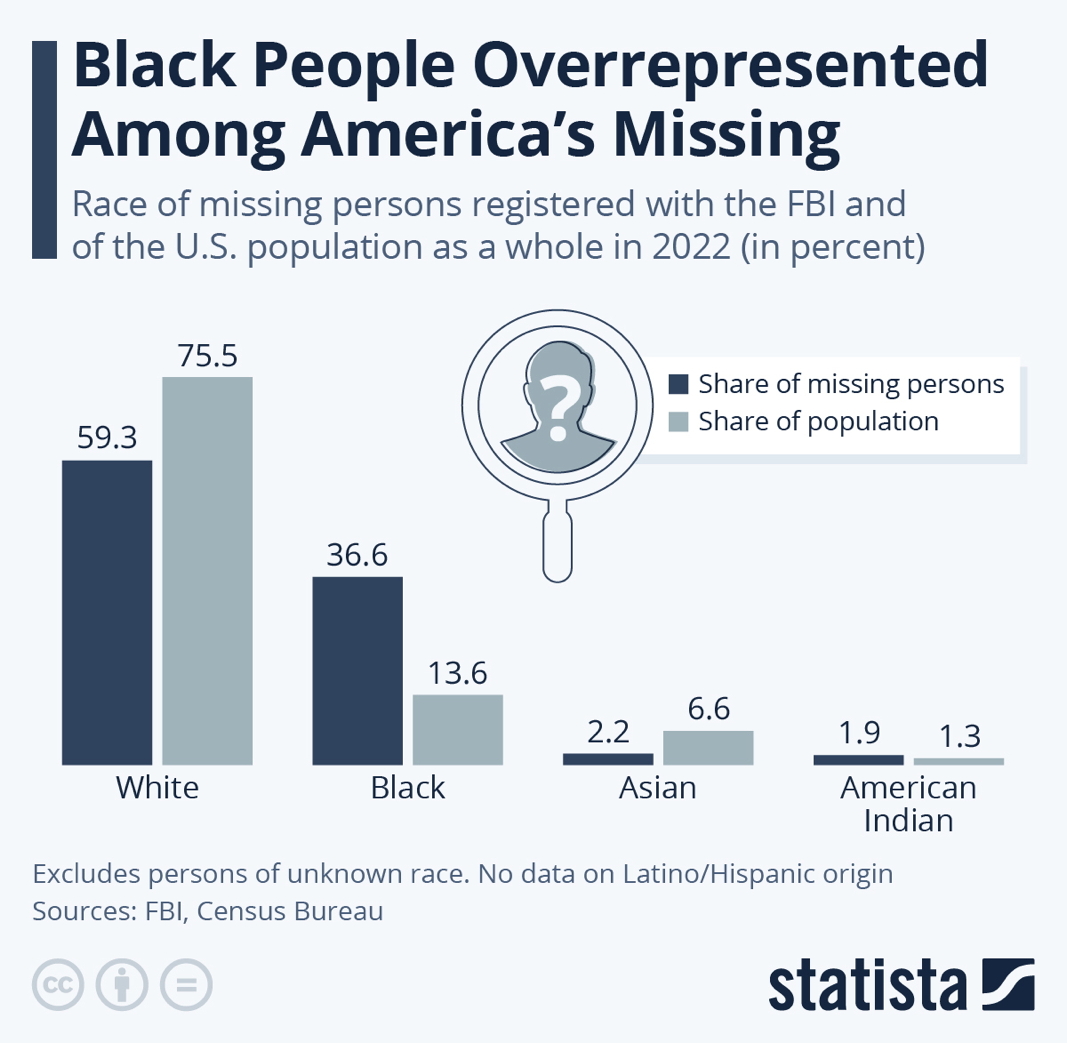
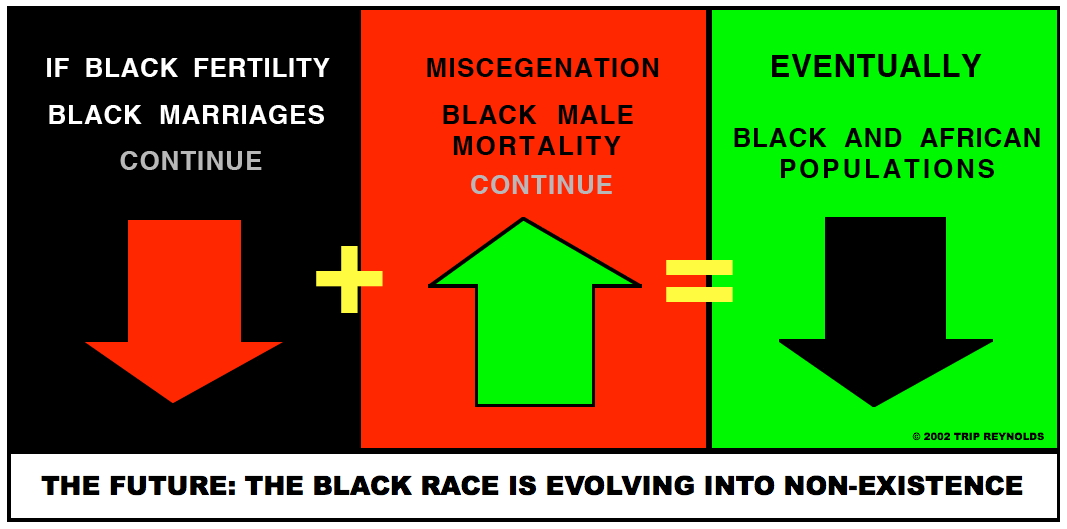
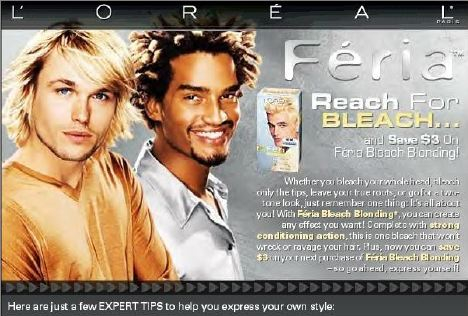

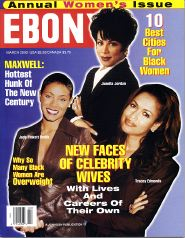
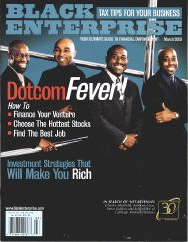

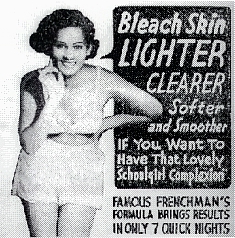

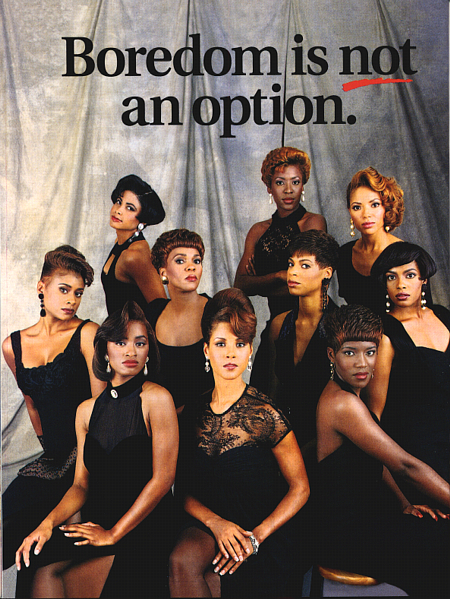
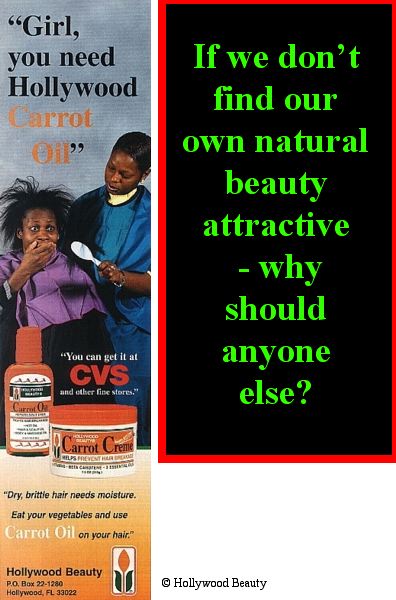
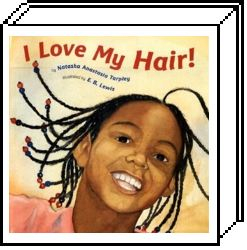
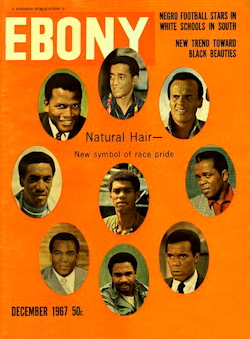
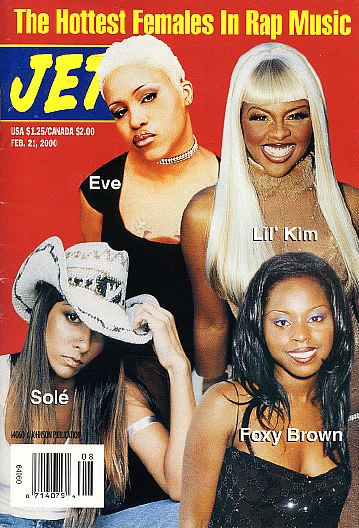
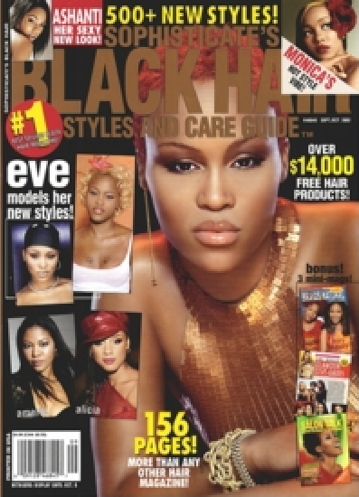
 1967-280W.jpg)
